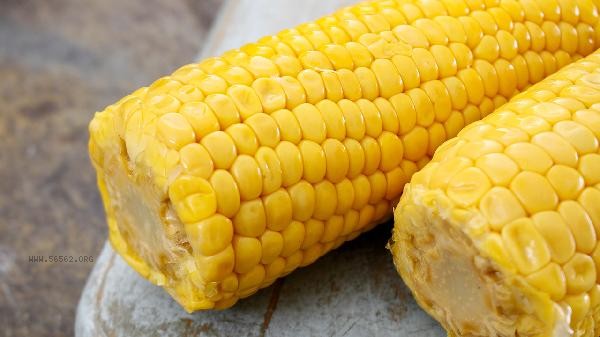The main methods for preserving fresh and delicious corn include refrigerated storage, frozen storage, shell storage, cooked storage, vacuum storage, etc.

1. Refrigerated storage
Fresh corn can be stored in the refrigerator, but the outer layer of the corn husk needs to be preserved. Corn husks can protect corn kernels from external environmental influences and reduce water loss. Put the corn with shells into a fresh-keeping bag, remove the air from the bag, seal it, and control the refrigeration temperature at around 4 degrees Celsius. This method is suitable for short-term storage and can generally maintain freshness for 3-5 days. The taste of refrigerated corn is close to fresh, suitable for direct steaming or baking for consumption.
2. Cryopreservation
Freezing is an effective method for long-term preservation of corn. Peel off the outer shell and whiskers of the corn, clean it thoroughly, and drain the water. You can choose to freeze the whole plant or cut it into pieces. Before freezing the whole plant, blanch it in boiling water for 1-2 minutes, quickly cool it down, and then dry off the water. Corn kernels can be directly frozen or blanched first. Frozen corn can be stored for 6-8 months and can be cooked directly without thawing, which can maintain its sweetness and texture.
3. Storage with shell
Fresh corn that is not immediately consumed should be stored with its intact shell. Corn husks can effectively prevent corn kernels from losing water and oxidation, maintaining the natural sweetness of corn. Place corn with shells in a cool and ventilated place, avoiding direct sunlight and high temperature environments. This method is suitable for short-term storage of 1-2 days, especially for fresh corn that has just been harvested from the field. Peel off the shell before consumption to preserve the original flavor of the corn to the fullest extent possible.

4. After cooking
It is also a common method to cook and store corn. After cooking the whole corn with its shell, it can be quickly cooled in ice water, drained of water, and placed in a sealed container for refrigeration. Boiled corn can be stored for 3-4 days when refrigerated, and for 2-3 months when frozen. This method is suitable for corn that has already been cooked, and when reheated, the taste is slightly soft but the sweetness is well preserved. The water used to cook corn can also be frozen and stored for use as broth.
5. Vacuum preservation
Using a vacuum sealing machine to preserve corn can significantly extend its shelf life. Process fresh corn and place it in a vacuum bag. After vacuuming, seal it. Vacuum refrigeration can store for 1-2 weeks, while vacuum freezing can last up to 1 year. This method can effectively isolate oxygen, prevent corn from oxidizing and spoiling, and maintain the best flavor and nutrition. The color and taste of corn stored in vacuum are close to fresh state, making it particularly suitable for commercial use or long-term storage.

During the storage process of corn, attention should be paid to avoiding temperature fluctuations and repeated thawing. The storage time of different varieties of corn varies slightly, and sweet corn is more prone to spoilage than ordinary corn. Regardless of the preservation method used, it should be consumed as soon as possible to ensure the best taste. Fresh corn is rich in dietary fiber, B vitamins, and antioxidants, and proper storage can maximize its nutritional value. It is recommended to choose a suitable storage method based on actual needs, and pay attention to the condition of the corn. If there is any odor or mold, it should be discarded immediately. Moderate consumption of corn in daily diet can help supplement various nutrients, but those with weak gastrointestinal function should pay attention to controlling their consumption.









Comments (0)
Leave a Comment
No comments yet
Be the first to share your thoughts!